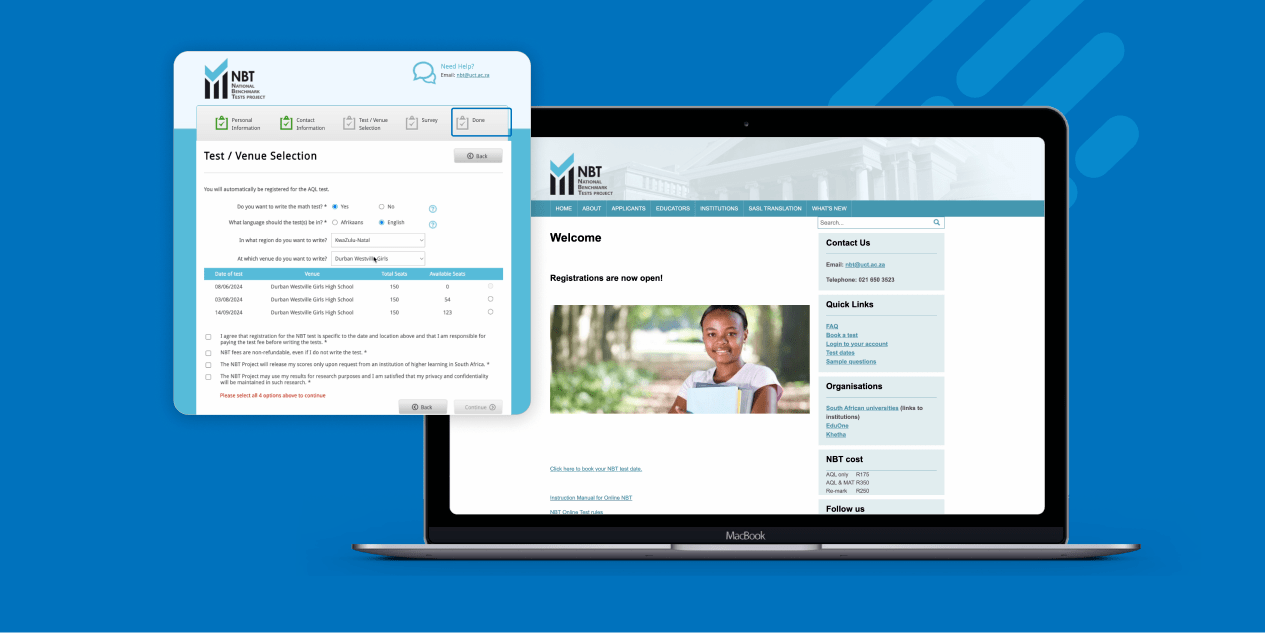
Are you too old to keep learning?
Careers


Keep expanding your mind
Just because your school days are over doesn’t mean your learning has to stop. No matter what age you are, it’s so beneficial to continue to learn. Some of the most successful people in the world are lifetime learners and the concept of continuous learning has become more and more common in recent years. Unfortunately, not everyone has the innate drive and curiosity to continue learning when they are in a comfortable place in life.
Despite this, the world continues to develop and change and on top of this, technology is speeding up the rate at which the world is changing. We’ve got to motivate ourselves to explore new ideas and concepts and to stretch our minds and what better time is there to start than right now as we practice social distancing.
The difference between continuous learning and lifelong learning
Continuous learning is specifically tied to one’s career. Continuous learning takes place when you’re still committed to your career and you’re thinking about learning something in line with your job role. This type of learning keeps your skills relevant in your workplace and can make you even more of an asset in your workplace than you already are.
Lifelong learning takes place at a more individual level and refers more to an individual’s decision to continue to acquire knowledge and skills. This doesn’t always refer to career-based learning but also shifts into other areas of growth.
Should your age stop you from learning new things?
It’s no secret that younger individuals find the process of learning to be far easier than those in later stages of life. This is because they are still in a state where their minds are developing but it is also because they are practising learning daily. Those who are young are encouraged to learn by those around them and their learning is facilitated until they choose not to continue with school or their university studies.
For those who are older, this is not the case. Facilitated learning is for the young and the focus shifts from learning to supporting a household and a family. Because of this, there is a break in the intentional ‘practice’ of learning. When we learn, we are exercising certain areas of our brain and when we stop learning, it becomes more difficult to get that area of our brain moving again.
This is why lifelong learning is beneficial on so many levels. Whether you’re reading this at the age of 40, 50, 60, 70… you name it, learning something new is 100% attainable. Continuing to learn beyond university years and into your adult and even old-age years can help you to be happier. The more you learn, the easier the learning becomes. On top of this, the benefits of continuing to learn during later life stages can even assist in delaying Alzheimer’s disease!
It’s incredible what our minds are about to achieve when we push ourselves to accomplish something new. Too many people have latched onto the statement ‘an old dog can’t learn new tricks’ and because of this, we’re not giving ourselves the opportunity to break free of this mentality.
What should you be learning?
So if you’ve taken this opportunity to start learning, the biggest question you’ll ask yourself now is what on earth to learn. The thought can be quite overwhelming so here are a couple of things to consider to help you make your choice. There are three key considerations that can help you decide what to start learning.
Career-driven learning
The first and probably the easiest way to decide what to learn next is to start with your career. No matter what field you’re in, you can find an area that you can grow in and specialise in by doing research in that area. There are many benefits to career-based learning. One such benefit is to become more proficient at your job, which increases your ability to problem-solve issues that arise. You may also grow in areas that don’t directly fall within your job role, which will make you more creative. Continuous learning in your career will ensure that your skills remain relevant and will make for a great addition on your CV. All of these things will make you more of an asset as an employee in your company.
Bucketlist hobby
Most of us have dreamt of being able to take up a specific hobby. This may be something like your dream to be able to fly fish, create your own vegetable garden, make your own furniture or to learn how to paint. You will be able to learn these skills by starting to watch tutorials or follow a course outline. There are many free resources available to start learning these skills. Having a hobby that you enjoy is a great way to unwind over the weekend and there are other so many great reasons to pick up a hobby!
Learn a language
Finally, learning a language is a great way to learn something new. You can choose a new language to learn based on a local language that you’ve always wanted to learn or an international language from a country that you’ve always dreamed of visiting.
Learning a new language will require persistence, it’s not always going to be easy to motivate yourself to keep pushing but it is also an incredibly rewarding experience! Once you’ve chosen your desired language, a quick Google search will help you identify the best resources for you.
I hope you’re feeling inspired to learn and grow your knowledge base. If you’ve made the decision to learn a new skill over this period, let me know what you’re learning by sending a direct message to our Facebook page. How are you staying motivated and continuing to learn?
This article was originally published on 29 Apr 2020
About the author
Mekayla Preiss
I am a Copywriter and Content Creator for AdvantageLearn.com. I enjoy getting creative and have a passion for people and crafting compelling content, I hope to inspire the next generation of learners and changemakers.

Can I apply for an NBT Academic Concession?
NBT
Featured
The NBT recognises the diverse needs of learners and strives to accommodate them through various academic concessions! From visual impairments to spe... Read more

Further Studies Subjects to Mechatronic Engineering
Student tips
FS Physics
Further Studies
FS Maths
Featured
On April 25, 2024, a number of learners who are interested in Further Studies Programmes joined a webinar to hear from Nicole, a distinguished alumnu... Read more

How to book your NBT test: a step-by-step guide
NBT
Featured
Booking your National Benchmark Test (NBT) is a crucial step in your journey towards university admission in South Africa. Here’s a detailed guide on... Read more
Do you want better Maths results?
Maths Online is a bank of over 2000+ extra lessons. Furthermore, gain access to our teacher support to help you when you need it!
More info

























